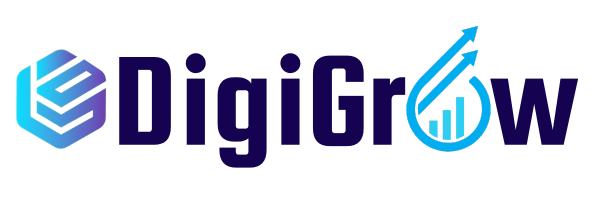Leveraging Data Analytics to Boost Your Digital Marketing Strategy
Boost your digital marketing strategy with data analytics! Discover how to use insights to optimize campaigns, improve SEO, and enhance social media performance.

Introduction
In today’s competitive digital landscape, leveraging data analytics is crucial for enhancing your digital marketing strategy. By utilizing data-driven insights, Canadian businesses can make informed decisions, optimize campaigns, and achieve better results. This article explores how to effectively use data analytics to elevate your digital marketing efforts.
Understanding Data Analytics
Data analytics involves examining and interpreting data to uncover valuable insights. In digital marketing, this means analyzing various metrics from your online campaigns, website performance, and social media activities. By understanding these metrics, businesses can identify trends, measure campaign effectiveness, and make data-driven decisions.
Key Areas Where Data Analytics Can Help
1) Customer Behavior Insights
-
- Analyzing Website Traffic: Use tools like Google Analytics to track visitor behavior, page views, and bounce rates. This helps in understanding what content resonates with your audience and where improvements are needed.
- Segmenting Your Audience: Data analytics allows you to segment your audience based on demographics, interests, and behaviors. This enables personalized marketing efforts and targeted messaging.
2) Optimizing Campaign Performance
-
- Tracking Key Metrics: Monitor metrics such as click-through rates (CTR), conversion rates, and cost per acquisition (CPA) to assess the performance of your marketing campaigns.
- A/B Testing: Implement A/B testing to compare different versions of ads, landing pages, or emails. Analyzing the results helps in identifying the most effective elements and refining your strategy.
3) Enhancing Social Media Strategies
-
- Engagement Analysis: Use social media analytics tools to track engagement metrics like likes, shares, comments, and impressions. This data helps in understanding which types of content generate the most interaction.
- Sentiment Analysis: Analyze social media sentiment to gauge public perception of your brand and address any negative feedback promptly.
4) Improving SEO Efforts
-
- Keyword Performance: Monitor keyword rankings and organic traffic to evaluate the effectiveness of your SEO strategy. Adjust your content and SEO tactics based on performance data.
- Backlink Analysis: Track the quality and quantity of backlinks to your site. This helps in identifying opportunities for acquiring high-quality backlinks and improving your search engine rankings.
Implementing a Data-Driven Approach
1) Set Clear Objectives
-
- Define what you want to achieve with your data analytics efforts. Whether it’s increasing website traffic, improving conversion rates, or enhancing social media engagement, having clear objectives helps in focusing your analysis.
2) Choose the Right Tools
-
- Invest in reliable data analytics tools such as Google Analytics, SEMrush, or HubSpot. These tools provide comprehensive insights and reporting features to support your digital marketing strategy.
3) Regularly Review and Adjust
-
- Data analytics is an ongoing process. Regularly review your data, track progress towards your goals, and make adjustments as needed. Staying agile and responsive to data insights ensures continuous improvement.
Conclusion
Leveraging data analytics is essential for optimizing your digital marketing strategy in Canada. By understanding customer behavior, optimizing campaign performance, enhancing social media strategies, and improving SEO efforts, businesses can make informed decisions and drive better results. Embrace a data-driven approach to stay ahead of the competition and achieve your marketing goals.
For more information on how data analytics can transform your digital marketing strategy, contact us today. Visit www.digigrow.ca, call us at +1-587-837-9606, or email info@digigrow.ca.
What's Your Reaction?
 Like
0
Like
0
 Dislike
0
Dislike
0
 Love
0
Love
0
 Funny
0
Funny
0
 Angry
0
Angry
0
 Sad
0
Sad
0
 Wow
0
Wow
0























































